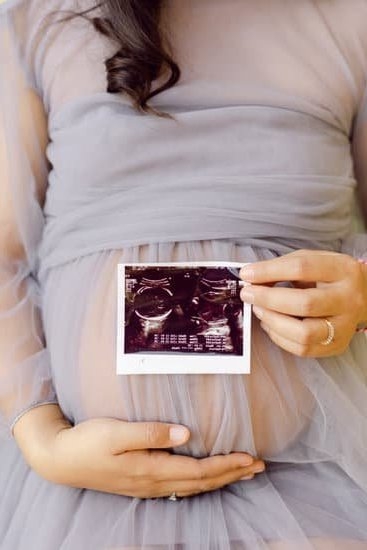Are you wondering, “Can I take a pregnancy test before my period?” Pregnancy tests play a crucial role in confirming whether or not you are expecting a child. It is important to understand when and how these tests can be taken to ensure accurate results. The timing of taking a pregnancy test can greatly impact its accuracy, and knowing when to do so can help alleviate any uncertainties you may have.
Understanding the menstrual cycle is key in determining when it is appropriate to take a pregnancy test. Ovulation typically occurs around the middle of the menstrual cycle, making this the most fertile window for conception. Early pregnancy symptoms such as nausea, fatigue, and breast tenderness may also start to appear during this time, prompting individuals to consider taking a pregnancy test.
Delving into how pregnancy tests work sheds light on the science behind detecting pregnancies. These tests work by identifying the presence of the human chorionic gonadotropin (HCG) hormone in urine, which is produced by the placenta shortly after implantation. Knowing how these tests function can provide insights into when it is best to take them for accurate results.
Understanding the Menstrual Cycle
The menstrual cycle is a complex process that is controlled by various hormones in a woman’s body. It typically lasts about 28 days, although it can range from 21 to 35 days in adult women.
Understanding the phases of the menstrual cycle is crucial when considering when to take a pregnancy test. The cycle begins on the first day of menstruation, known as Day 1, and consists of four main phases: menstruation, the follicular phase, ovulation, and the luteal phase.
Ovulation is a key event in the menstrual cycle as it is the phase during which an egg is released from the ovary and travels down the fallopian tube where it may be fertilized by sperm. Ovulation usually occurs around mid-cycle, approximately 14 days before the start of the next period.
This means that for women with regular 28-day cycles, ovulation typically happens around Day 14. However, it’s important to note that the timing of ovulation can vary based on individual factors such as stress, illness, or hormonal imbalances.
Understanding your menstrual cycle and pinpointing when ovulation occurs can help determine when it is appropriate to take a pregnancy test. While most home pregnancy tests are designed to detect pregnancy hormones shortly after implantation occurs (usually about 6-12 days after conception), taking a test too early may result in a false negative result. Therefore, waiting until after you have missed your period can increase the accuracy of the test and reduce the chances of getting an incorrect result.
Early Pregnancy Symptoms
When it comes to early signs of pregnancy, it’s important to pay attention to your body and take note of any changes that may occur. While the most definitive way to confirm a pregnancy is through a pregnancy test, there are common symptoms that might give you an inkling that you could be pregnant. Here are some of the early signs of pregnancy that you might experience even before taking a pregnancy test:
- Nausea and morning sickness: Many women experience nausea, particularly in the morning, as one of the first signs of pregnancy.
- Fatigue: Feeling more tired than usual can be a symptom of early pregnancy, as your body goes through hormonal changes to support the growing fetus.
- Breast tenderness: Hormonal changes in early pregnancy can lead to sensitive and tender breasts, which can be a tell-tale sign for some women.
These symptoms vary from woman to woman, and not everyone will experience all or any of these signs. However, if you are experiencing these symptoms along with a missed period or other possible indicators of pregnancy, it might be time to consider taking a pregnancy test.
Keep in mind that these early symptoms can also be caused by other factors unrelated to pregnancy. Stress, illness, hormonal fluctuations, or changes in diet can also lead to nausea, fatigue, and breast tenderness.
If you suspect you might be pregnant but are unsure whether it’s too early to take a test before your period, it is best to consult with your healthcare provider for personalized advice. Remember that accurate results from a home pregnancy test typically depend on taking the test at the right time in your menstrual cycle.
How Pregnancy Tests Work
Pregnancy tests are designed to detect the presence of hCG (human chorionic gonadotropin) hormone in a woman’s urine or blood. This hormone is produced by the cells that will eventually form the placenta after a fertilized egg attaches to the uterine lining.
hCG hormone levels rise rapidly in early pregnancy, doubling approximately every 48 to 72 hours. The detection of hCG in a woman’s body is a key indicator of pregnancy and forms the basis of how pregnancy tests work.
At-home pregnancy tests use urine samples to detect hCG levels. These tests typically involve placing drops of urine on a specially treated testing strip or dipping the strip into a small container of collected urine.
The test then reacts with any hCG present in the sample, causing a color change or other visual indication on the test result window. Most at-home tests claim to be accurate as early as the first day of a missed period, but some sensitive tests may be able to detect hCG even sooner.
On the other hand, clinic-based pregnancy tests may use either urine or blood samples to detect hCG levels. Blood tests are more sensitive and can detect much lower levels of hCG compared to urine tests, making them more accurate for early detection of pregnancy.
However, these types of tests require a visit to a healthcare provider and may take longer to obtain results compared to at-home testing kits. Ultimately, both at-home and clinic-based pregnancy tests operate on the same principle: detecting hCG hormone to confirm or rule out pregnancy.
| Home Tests | Clinic Tests |
|---|---|
| Use urine samples | Use urine or blood samples |
| Quick results at home | May take longer for results |
| Less sensitive than blood tests | More sensitive and accurate |
When to Take a Pregnancy Test
Timing Matters
The timing of when to take a pregnancy test is crucial for accurate results. While some tests claim to be able to detect pregnancy before a missed period, it is generally recommended to wait until after your missed period for the most reliable outcome.
This is because the levels of the pregnancy hormone hCG can vary widely in early pregnancy, and waiting until after a missed period ensures that there is enough hCG in your system to be detected by the test.
Early Testing
However, some women may be eager to find out if they are pregnant as soon as possible. In some cases, certain early response pregnancy tests can i take a pregnancy test before my period by detecting lower levels of hCG than traditional tests.
These tests may be able to provide accurate results a few days before your expected period, but it’s important to keep in mind that there is still a chance of getting a false negative if the levels of hCG are not yet high enough.
Recommended Timing
For the most reliable results, it is generally advised to wait until at least one week after your missed period before taking a pregnancy test. By this time, the levels of hCG should be high enough for even the most sensitive tests to detect.
If you receive a negative result but still suspect you might be pregnant, it’s always a good idea to retest in a few days or consult with your healthcare provider for further guidance. Remember that every woman’s body is different, so it’s essential to listen to yours and trust your instincts when it comes to early detection of pregnancy.
Factors Affecting Test Results
When considering taking a pregnancy test before your period, it is important to understand the factors that may affect the accuracy of the results. Various medications and fertility treatments can potentially impact the outcome of a pregnancy test. It is crucial to be aware of these factors to ensure that you receive reliable results.
Here are some common factors that can affect the accuracy of a pregnancy test:
- Medications: Certain medications, such as hormonal birth control pills or fertility drugs, can interfere with the hormone levels in your body, potentially leading to false positive or negative results on a pregnancy test.
- Diluted urine: Drinking excessive amounts of water or other fluids can dilute the concentration of HCG hormone in your urine, which may affect the sensitivity of the pregnancy test.
- Timing: Taking a pregnancy test too early in your menstrual cycle may result in a false negative result, as there may not be enough HCG hormone present to be detected by the test.
If you are unsure about whether any medications or treatments you are currently undergoing could impact the accuracy of a pregnancy test, it is recommended to consult with your healthcare provider for guidance. They can provide valuable insight into when it would be best to take a pregnancy test and how to interpret the results accurately. Remember that accurate testing is essential for making informed decisions about your reproductive health.
Home vs Clinic Tests
When it comes to taking a pregnancy test, individuals are faced with the decision of whether to use an at-home kit or visit a clinic for testing. Both options have their own set of advantages and disadvantages, so it is important to weigh them before making a decision.
Accuracy of Results
At-home pregnancy tests
While many at-home tests claim high accuracy rates, there is still a chance of receiving a false positive or false negative result. On the other hand, clinic tests are typically more accurate as they may involve blood tests that directly measure hCG levels.
Convenience and Cost
One of the main appeals of at-home pregnancy tests is their convenience and accessibility. They
Seeking Medical Advice
While at-home tests provide quick results and convenience, it is recommended that individuals consult with a healthcare provider regardless of the test outcome. A medical professional can offer guidance on next steps, confirm results with further testing if needed, and provide support throughout the pregnancy journey. Clinic tests may involve counseling services that can address any concerns or questions that arise during this crucial time in one’s life.
Conclusion
In conclusion, taking a pregnancy test before your period can be a nerve-wracking experience, but it is possible to do so with accuracy if done correctly. While early testing may provide some answers sooner rather than later, it is essential to understand the nuances of the menstrual cycle and the science behind pregnancy tests to ensure reliable results.
Remember that every woman’s body is different, and early pregnancy symptoms can vary greatly. It is crucial to pay attention to your body and consult with a healthcare provider if you suspect you may be pregnant, even before your missed period. Additionally, factors such as medications or fertility treatments can impact the results of a pregnancy test, so it is important to consider these variables when deciding when to take a test.
Ultimately, whether you choose an at-home test or opt for professional testing at a clinic, the most important thing is to take care of yourself. If you are experiencing symptoms of early pregnancy or have concerns about the possibility of being pregnant, don’t hesitate to seek medical advice and support. Remember that while taking a pregnancy test before your period comes with uncertainties, accurate results are possible with proper knowledge and understanding of your body’s unique signals.
Frequently Asked Questions
How Soon Will a Pregnancy Test Read Positive?
A pregnancy test typically reads positive about 10-14 days after conception. It is important to wait until you have missed a period to ensure accurate results, as testing too early may lead to false negatives.
Can You Take a Pregnancy Test Before Your Period Starts?
Yes, you can take a pregnancy test before your period starts, but it’s generally recommended to wait until after you have missed your period for more accurate results. Testing too early may result in a false negative due to low levels of the pregnancy hormone hCG.
How Accurate Is a Pregnancy Test by Days Before Period?
The accuracy of a pregnancy test by days before your period varies depending on the sensitivity of the test and the levels of hCG in your body.
Some tests claim to detect pregnancy up to 6 days before your missed period, but it’s always best to confirm with another test if you get a negative result and still suspect you might be pregnant.

Welcome to my fertility blog. This is a space where I will be sharing my experiences as I navigate through the world of fertility treatments, as well as provide information and resources about fertility and pregnancy.





